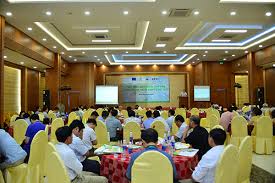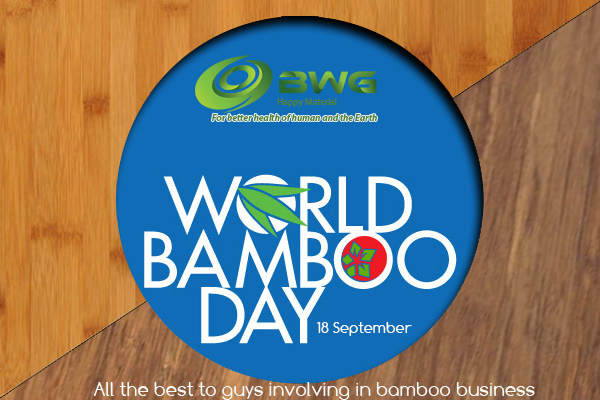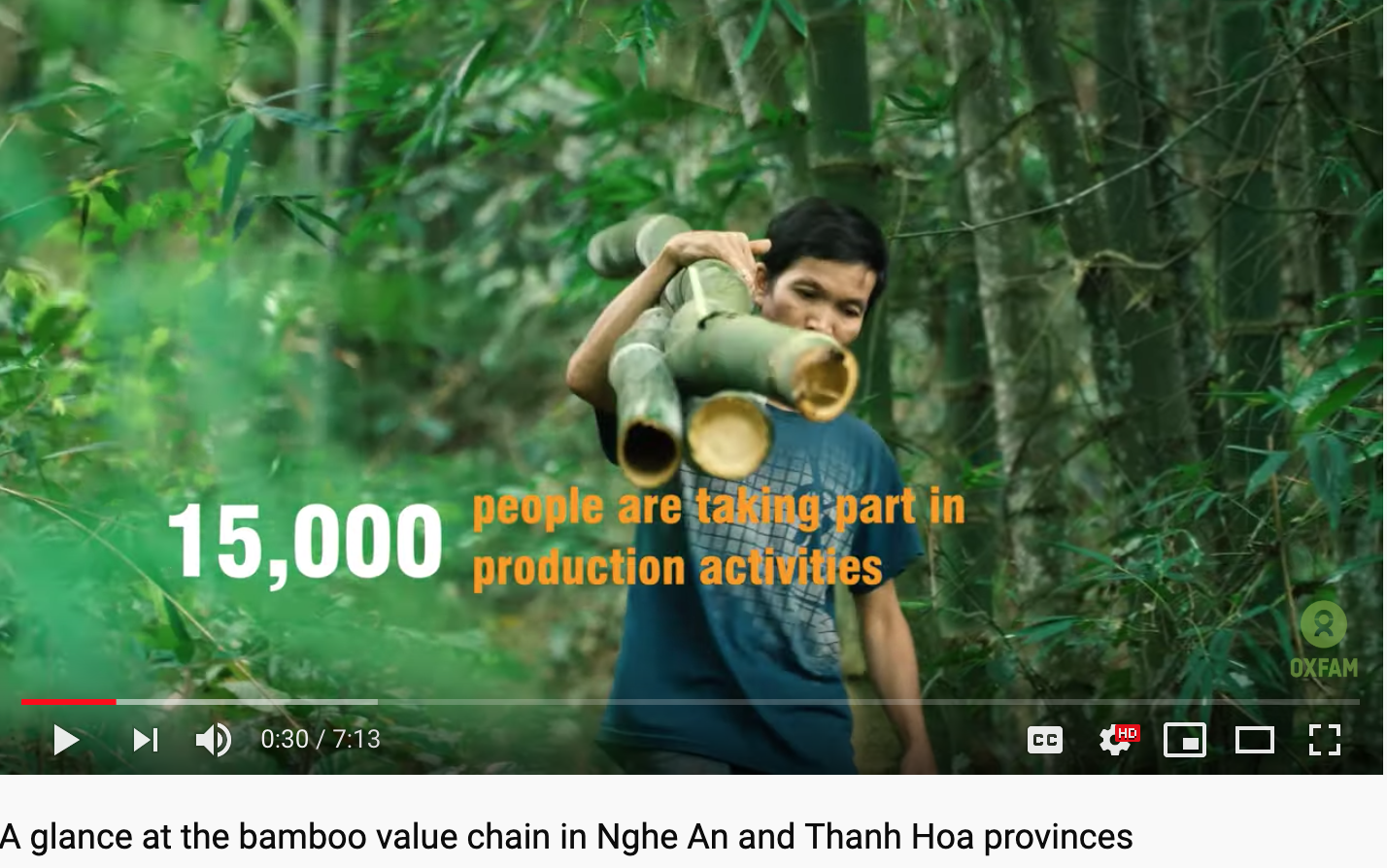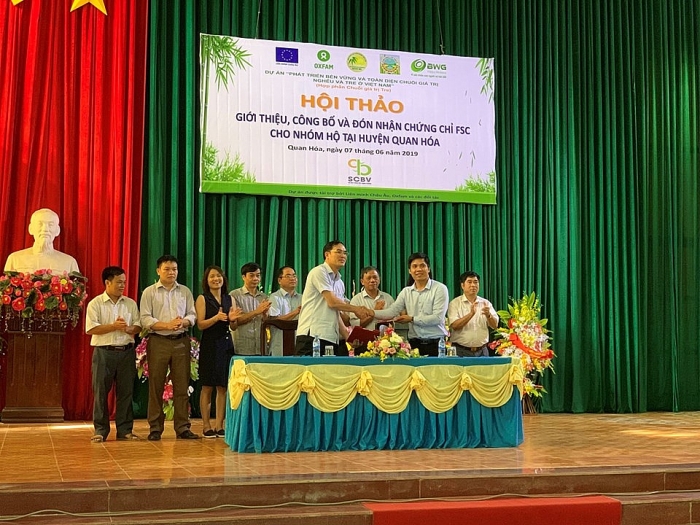
Fostering Inclusive, Sustainable Development of Clam and Bamboo Value Chains in Vietnam
Making products from bamboo is considered one of the most popular types of environment-friendly non-timber forest product processing. This is a very important economic sector for rural people in Vietnam. Therefore, developing the bamboo industry is not only important to reducing poverty and building the new countryside, but also contributing to environmental protection.
According to incomplete statistics, Vietnam has more than 723 bamboo-related handicraft villages which provide over half a million jobs and earn about US$350 million from bamboo a year.
The primary difficulty of this sector is the lack of a well-planned input material areas and a well-made sector development planning in addition to the use of backward production equipment and technologies. Notably, the quality of bamboo products is inconsistent. Most actors lack knowledge and don't apply certification systems and quality standards. These greatly affect output markets as well as product value.
Recently, Oxfam, together with the Non-timber Forest Products Research Centre (under the Vietnamese Academy of Forest Sciences - Ministry of Agriculture and Rural Development), the Vietnam Chamber of Commerce and Industry (VCCI), and two local parties of Nghe An and Thanh Hoa provinces, kicked off a EUR4.3 million project funded by the European Union (EU), Oxfam and donors towards the sustainable development of clam and bamboo value chains in Vietnam.

Ms Babeth Ngoc Han Lefur, Director of Oxfam in Vietnam, said that incomes of small-scale producers will be improved when their products meet quality and sustainability standards, and their negotiating capabilities with processing and trading companies are raised, thereby resulting in greater access to domestic and international markets.
In addition to supports for improving production techniques, enhancing added value and business and processing performance, the project focuses on upgrading the capacity of smallholding producers, providing technical assistances for leading companies in clam and bamboo value chains towards important sustainability standards such as the Marine Stewardship Council (MSC) for clams and Forest Stewardship Council (FSC) for bamboo. These are prerequisites for accessing demanding markets like Europe.
Dr Phan Van Thang, Director of the Non-timber Forest Products Research Centre (NTFPRC), said, “To increase the added value and competitiveness of bamboo products, we must strictly adhere to sustainability standards in our products. International markets demand high quality standards and this is both a challenge and an opportunity because, when we meet these standards, producers and processors will not only increase their incomes, but also contribute to the sustainable employment of materials and to social security.”
Dr Pham Van Chat, an arbitrator at the Vietnam International Arbitration Centre - VCCI, said that most European nations, Japan and the US have regulations on importing products made from rattan, bamboo and handicrafts, particularly environmental rules. They trace the origin of inputs and control infectious pests, particularly in non-smoked, dried products.
| The project “Sustainable and inclusive development of clam and bamboo value chains in Vietnam” will be implemented for four years (2018-2022) in the five provinces of Thanh Hoa, Nghe An, Ben Tre, Tra Vinh and Tien Giang, benefiting 150 production groups with 35,000 members and 60 small and medium processing enterprises.
The project is administered and coordinated by Oxfam in partnership with the International Collaborating Centre for Aquaculture and Fisheries Sustainability (ICAFIS), the Non-timber Forest Products Research Centre (NTFPRC), and the Vietnam Chamber of Commerce and Industry (VCCI).
|
New markets for clam and bamboo products will be researched and approached through domestic and international trade promotion activities, especially with the International Network for Bamboo and Rattan (INBAR), retail associations and international retailers like Amazon, Morrison, Walmart and Axfood.
In addition, another important objective of the project is to promote a favourable policy environment to enhance the performance of value chain management. Public-private alliances, including local governments, public service bodies, financial institutions, industry players, socio-political organisations, and partners will be established in five impact provinces.
The alliances will focus on promoting sectoral development policies, strengthening trade promotion, market access and credit, and monitoring actions toward the sustainable and inclusive development of value chains.
Thu Ha
Related posts
























